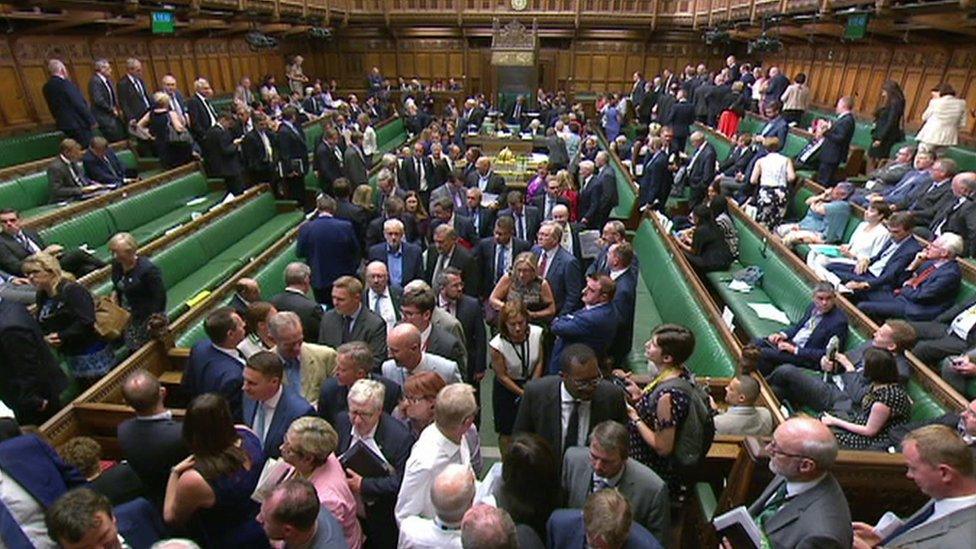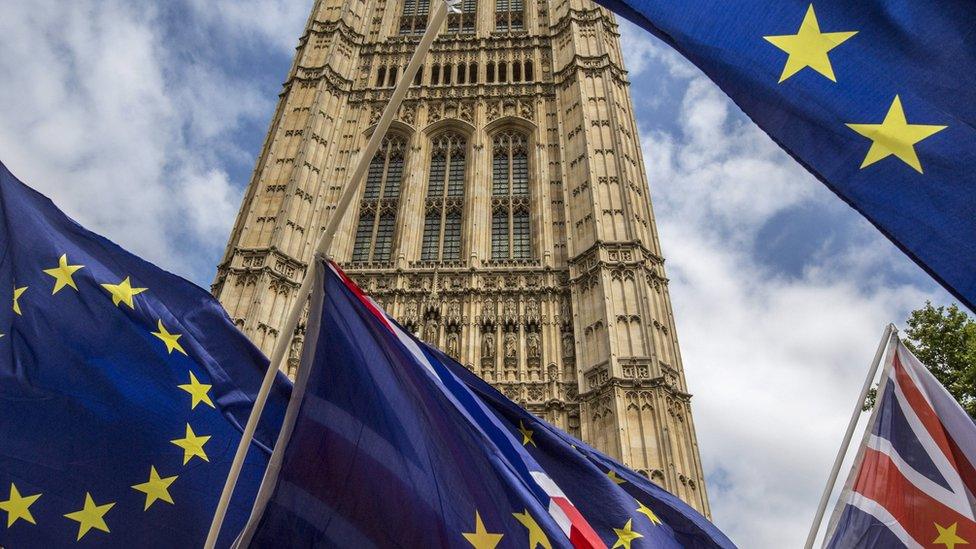A problem but not a disaster
- Published

They didn't escape defeat for long.
Having squeaked through last night the government was beaten for only the second time ever in the Commons on key Brexit legislation.
And guess what, it was on a vote they didn't expect to lose - Dr Phillip Lee, who quit the government to speak out on Brexit, put forward his own amendment to protect the links between the UK and the European Medicines Agency to ensure the smooth flow of medicines and new drugs for British patients after Brexit.
And he had enough to support to win it, just. An embarrassment for the government certainly.
It is another reminder of how difficult it is for Theresa May to get her way in the House of Commons where she doesn't have her own majority.
It is serious. A defeat is a problem. But it wasn't a complete disaster tonight for two reasons.
First, the amendment isn't a million miles away from the government's own policy. While not straightforward, the vote hasn't forced a screeching U-turn.
The more important reason is that the vote that followed, on keeping the UK in a customs union, went the other way.
For many months, former Remain rebels have talked about this vote as being one of the critical moments when finally their bark would turn into a bite, the time when they would show their mettle and force the government to, as they see it, put jobs and economic stability ahead of their Brexit ideology.
Tonight, a dozen of them, more than was needed to beat the government back in December, voted for the amendment. But the government won by six votes, because of four Labour MPs - long term advocates of leaving the EU - who voted with Theresa May.
By all accounts, the government had to go to some pretty extreme attempts to keep the number of Tory rebels down to a dozen.
Sources have told the BBC not just that the whips warned a government loss would lead to a vote of confidence in the prime minister, but also suggested the chaos that might ensue could tip them into a general election.

But it was a vital victory, snatched from the jaws of defeat minutes earlier, because the prime minister has, for many months, expressly said that staying in a customs union is not possible, even if desirable.
Rightly or wrongly, it is central to her strategy and to lose on that vote would have really have undermined her negotiating strategy only a day after Brexiteers undermined her from the other side.
The numbers will still be a worry for the prime minister.
Because if - as is likely when it comes to the final deal - all of the other parties vote against the government, it suggests there are enough Tories unhappy with the direction of travel to sink the government's plan.
Begbie or Margot?
But for tonight, a win is a win, however chaotic, however dirty the tricks played to get the numbers there, and a massive defeat avoided - allowing Theresa May just about to keep the veneer that she can, more or less, get her business through the House of Commons.
And the win will also provide ammunition for critics of the former Remain band, who, when push comes to shove, are not only less numerous than the ardent Brexiteers, but simply less willing to play hardball.
It's no secret that instinctively and indeed, for many of them, proudly, they are more likely to argue for compromise, than some of the Eurosceptics.
As one senior Tory joked, the Eurosceptics are more like Begbie from Trainspotting - and the Remainers are more like Penelope Keith's Margot from the Good Life.

One senior Tory compared Remainers to The Good Life's Margot
Begbie would fight, maybe to the death, for his cause. Margot would complain fervently and acidly, but she was never going to put the overall reputation of Surbiton at risk.
That might sound ridiculous but this is one of the profound realities and a point we've discussed many times before.
Some Brexiteers would rather risk an election than compromise. It is hard to find former Remainers who would do the same. That's been part of the calculations of Number 10 so far. But there has been so much turmoil in the last few weeks that it might not always be the case.